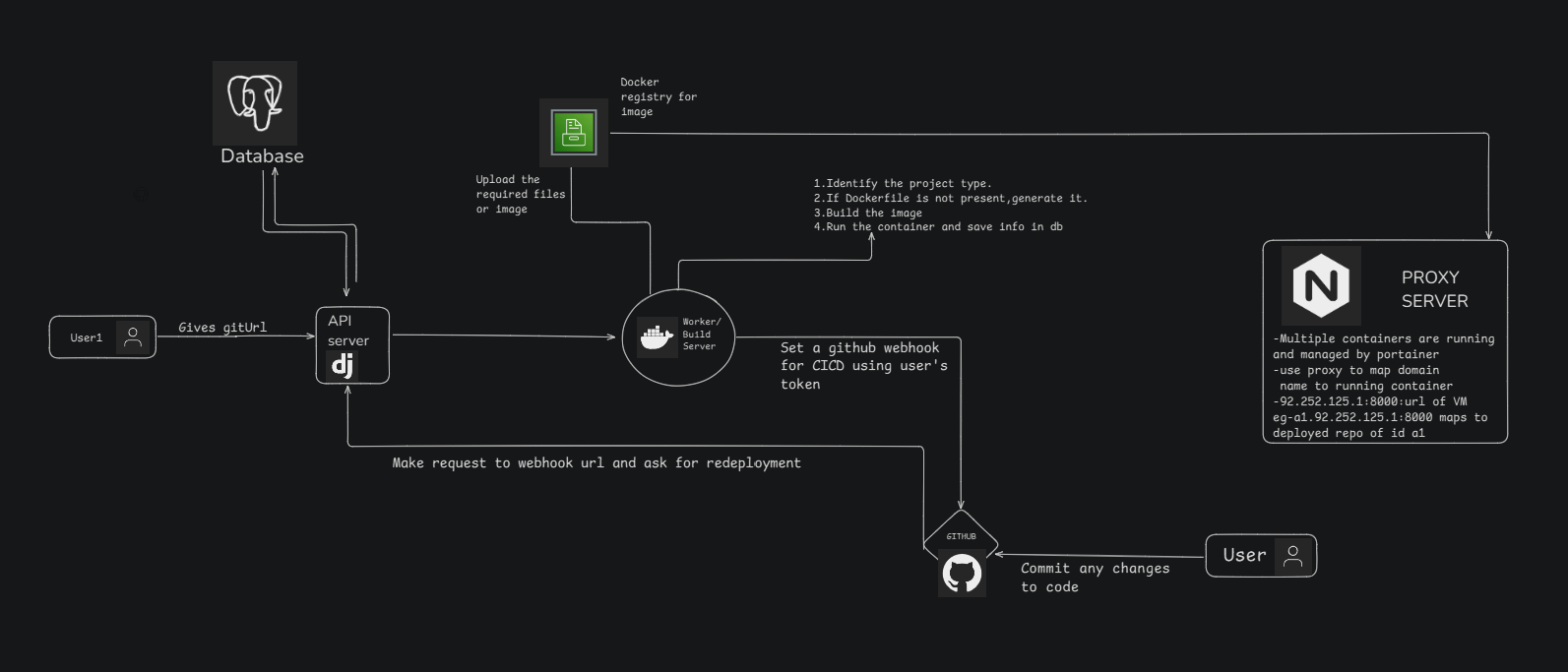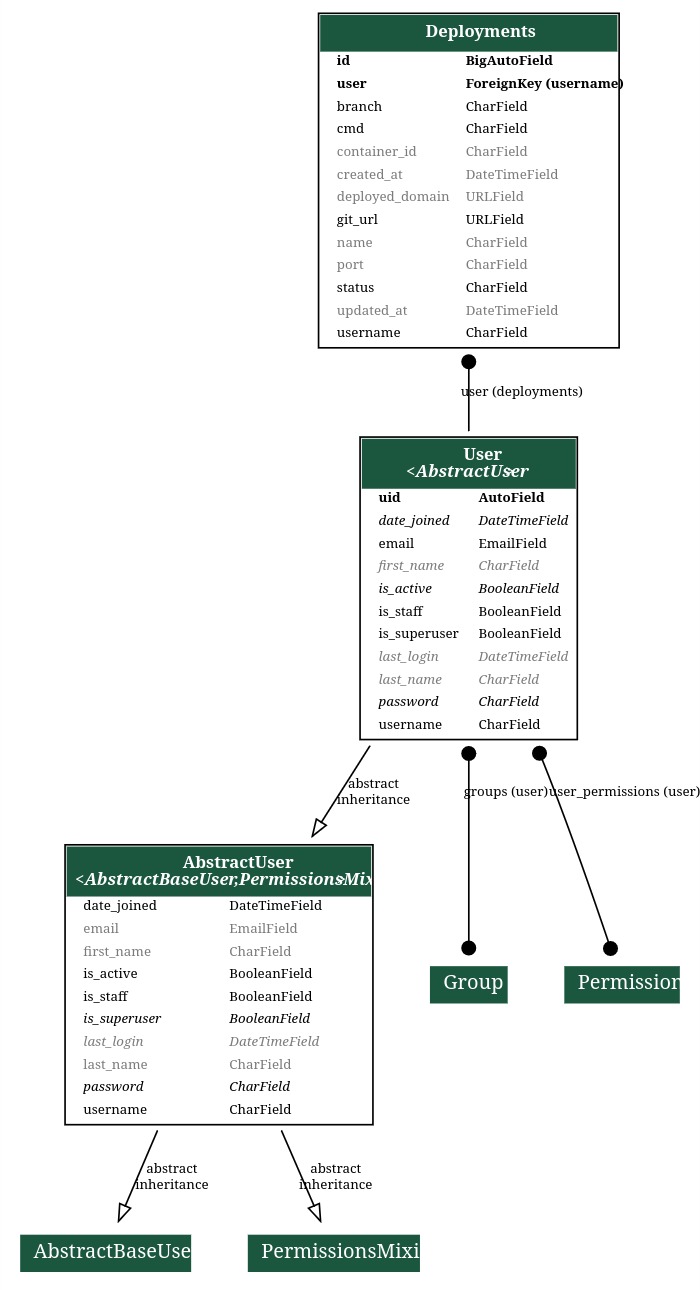C06_ContainerOps
Abstract
Abstract
🌐 Overview
ContainerOps is a comprehensive Continuous Deployment (CD) platform that simplifies Docker-based application deployment through automated Dockerfile generation, GitHub integration, and real-time monitoring capabilities. The platform is designed to empower developers by providing a seamless user experience for deploying applications using Docker orchestration, enabling teams to focus on development while ensuring smooth and secure deployment across various environments.
🌟 Features
1.Automated Dockerfile Generation
Intelligent project structure analysis to detect project type
Creates optimized Dockerfiles tailored to language and framework requirements
Supports custom Dockerfile overrides when needed
2.GitHub Integration
Seamless OAuth authentication for secure repository access
Supports both public and private repositories
Webhook integration for automatic deployment on code changes
Branch selection for deployment flexibility
3.Continuous Deployment Pipeline
Automatic builds triggered by GitHub commits
Consistent deployment process across environments
Rollback capabilities for failed deployments
Support for environment variables and secrets management
4.Container Management
Full lifecycle control of Docker containers (create, start, stop, remove)
Container orchestration with health monitoring
5.Resource usage tracking and optimization
Container versioning and history
Live Monitoring
Real-time build and application logs via WebSockets
Container status and health checks
Performance metrics and resource utilization
6.Domain Routing
Dynamic Nginx configuration for custom domain mappin
Traffic routing
Docker Registry
Built-in private registry for container images
Secure storage and distribution of application images
Version tagging and management
🛠️ Technology Stack
Backend
Framework: Django 3.2 (Python)
WebSockets: Django Channels
Frontend
HTML/CSS: Responsive design with TailWind CSS
JavaScript: Interactive dashboard components
Real-time Updates: WebSocket integration
Infrastructure
Containerization: Docker, Docker Compose
Authentication: OAuth 2.0 (GitHub, Google)
Database: PostgreSQL 12+
Web Server: Nginx for reverse proxy and domain mapping
CI/CD: Webhook-based automated pipeline
🏗️ System Architecture

ContainerOps follows a microservices architecture with the following key components:
1.Build Server
Analyzes project structure and generates optimized Dockerfiles
Builds Docker images from source code
Pushes built images to the integrated Docker registry
Handles GitHub webhooks for automated builds
2.Proxy Server
Manages container lifecycle (create, start, stop, remove)
Configures Nginx for domain routing and SSL termination
Handles user authentication and authorization
Provides API endpoints for the dashboard
3.Docker Registry
Stores and distributes Docker images
Manages image versioning and tagging
Provides secure access to container images
4.Monitoring Service
Collects container metrics and logs
Provides real-time updates via WebSockets
Monitors container health and performance
5.Database
Stores user data, repository information, and deployment configurations
Tracks container status and history
Maintains system settings and environment variables
🔄 Workflow
1.Authentication & Repository Selection
User authenticates through GitHub or Google OAuth
System requests appropriate permissions for repository access
User selects target repositories for deployment
System validates repository access and structure
2.Configuration & Setup
User provides deployment parameters (environment variables, resource limits)
System analyzes project structure to determine project type
User selects branch and deployment options
System validates configuration for potential issues
3.Dockerfile Management
System auto-generates optimized Dockerfiles based on project type
User can review and customize generated Dockerfiles
System uses existing Dockerfile if present in repository
Support for multi-stage builds and optimized caching
4.Build & Registry
System clones repository and builds Docker image
Build logs streamed in real-time via WebSockets
Built images are tagged and pushed to integrated Docker registry
Image metadata and version history maintained
5.Deployment Pipeline
GitHub webhooks trigger automatic deployment on code changes
System pulls updated images from registry
Container orchestration manages deployment updates
Zero-downtime deployments with health checks
Automatic rollback for failed deployments
6.Monitoring & Management
Interactive dashboard for container status monitoring
Live build and application log streaming
Resource utilization metrics and alerts
Complete container lifecycle management (scale, restart, stop)
Custom domain and routing configuration
🗄️ Database Schema
The ContainerOps database schema includes the following core tables:
1.Users
User authentication and profile information
OAuth tokens and permissions
User preferences and settings
2.Repositories
GitHub repository details and access credentials
Branch information and webhook configuration
Project type and structure metadata
3.Deployments
Container configuration and environment variables
Resource allocation and limits
Deployment history and versioning
Build and runtime logs
4.Containers
Container status and health metrics
Resource utilization statistics
Network configuration and port mappings
Related deployment and image references
5.Domains
Custom domain mappings and SSL certificates
Routing rules and load balancing configuration
DNS verification status and history

🔮 Future Enhancements
Multi-Provider Support: Extend beyond GitHub to support GitLab, Bitbucket, and Azure DevOps
Advanced Scaling: Horizontal and vertical scaling capabilities for containerized applications
Enhanced Monitoring: Advanced metrics collection with Prometheus integration
Multi-Cluster Support: Distributed deployments across multiple Docker hosts or Kubernetes clusters
CI Pipeline Integration: Complete CI/CD solution with testing frameworks
Blue-Green Deployments: Advanced deployment strategies for zero-downtime updates
Service Mesh: Integration with service mesh solutions for microservices
Custom Plugins: Extensible plugin system for additional functionality
Team Collaboration: Advanced team management and permission controls
Cost Optimization: Resource allocation and cost tracking features
👥 Team
Mentors
Apoorva Agrawal
J Hariharan
Nandan Ramesh
Krishna Tulsyan
Mentees
Adurti V L Varshini
Sahil Kumar
Yash Kumar Singh
Report Information
Team Members
Team Members
Report Details
Created: April 7, 2025, 10:01 a.m.
Approved by: Vartika T Rao [CompSoc]
Approval date: None
Report Details
Created: April 7, 2025, 10:01 a.m.
Approved by: Vartika T Rao [CompSoc]
Approval date: None

